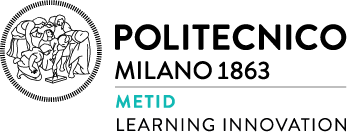
Blog #16

DIGITAL TRANSFORMATION: THE KEY ROLE OF MOOCs
Authors: Daniela Casiraghi, Bianca Santolini
Politecnico di Milano – METID – Learning Innovation
Context
The debate over digital transformation has been on the table for years. But now more than ever, the push for a concrete shift is intensifying, also due to the Covid-19 pandemic. This could lead to an important job crisis, if we do not implement new strategies for the development of digital skills for young and low-skilled workers. Universities and educational institutions occupy a key role in this scenario: the Distance Learning experience introduced in March 2020, demonstrated how they can cope with this complex scenario, also thanks to the integration in their curricula of Massive Open Online Courses, which proved to be an important vehicle of flexibility and adaptation in a general context characterised by different barriers. The Polimi Open Knowledge Platform (www.pok.polimi.it) is delivering two MOOCs series covering the topic of digitization in different sectors: they are opening the way for a new track “for professionals”, meant to answer to the increasing demand of digital skills.



